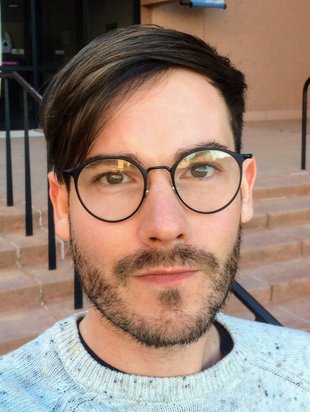Carbon emitting ecosystems and how open access makes research more equitable, transparent, and impactful
21 Aug 2023 by Faye Holst Dr. Renato Braghiere, Research Scientist at California Institute of Technology and NASA Jet Propulsion Laboratory
Dr. Renato Braghiere, Research Scientist at California Institute of Technology and NASA Jet Propulsion Laboratory
- Can you tell us about your research and how it addresses the climate crisis?
Our study indicates a tipping point in the next few decades, where the Arctic-Boreal area in North America, which is full of coniferous forests, mires and lakes will start to emit carbon rather than absorb it. This information is crucial for policymakers who need to take action to mitigate climate change.
Our work research evaluates the ability of Earth system models (ESMs) to project the future of carbon balance in North American Arctic-Boreal ecosystems. This region is critical for mitigating the effects of climate change.
- Have there been challenges during the research process?
Yes, there were a few hiccups during our study on predicting how climate change will affect Arctic-Boreal ecosystems. We spent a lot of time analyzing computer models and comparing their outputs to real-life observations. It was like peering into a virtual crystal ball, except instead of a physical ball, we had a bunch of computer screens and lines of code.
- The research was published open access, what made you decide to do that?
As the first authors of the published paper, we decided to make it open access because we believe that scientific research should be accessible to everyone, regardless of their institutional affiliation or financial resources. We wanted to ensure that our findings would be widely available to researchers, policymakers, and the general public who are interested in the impacts of climate change on Arctic-Boreal ecosystems. By publishing open access, we can reach a broader audience and increase the visibility and impact of our research.
Moreover, we believe that open access publishing aligns with the principles of transparency and accountability in scientific research. It allows other researchers to reproduce and build upon our findings, which can ultimately lead to more robust and accurate scientific knowledge. We also wanted to support the growing movement towards open science, which promotes collaboration, innovation, and the sharing of knowledge for the benefit of society.
Overall, we believe that open access publishing is a crucial step towards making scientific research more equitable, transparent, and impactful.
- Has publishing your work open access made a difference?
We were thrilled to publish our research on the North American Arctic-Boreal carbon sink in an open access format. It was exciting to see that our article received a significant number of downloads and got in the top 25% of all research outputs scored by Altmetric. This indicates that it was shared and discussed widely on social media and other online platforms.
One of the most surprising things we observed was the positive response on Twitter. Many people from different backgrounds engaged with our research and shared their thoughts and questions, which was encouraging to see. It was also gratifying to hear from researchers and practitioners in our field who reached out to us to discuss our findings and explore potential collaborations.
Overall, publishing our research as open access has helped to increase the visibility and impact of our work, and we are pleased to have contributed to the open science movement. We hope that our findings will continue to inform and inspire further research and action in this critical area.
- What would you advise other researchers if they would like to publish their research openly at no cost to them?
My advice for researchers who want to publish their research openly at no cost would be to explore the open access policies of their institution or funder. Many universities and research funders have agreements in place with publishers to cover the costs of open access publishing. Additionally, there are a growing number of open access journals that do not charge authors publication fees. Researchers should also consider posting preprints of their work on open access repositories. It is important to carefully read and understand the terms and conditions of any open access options before publishing to ensure compliance with funding mandates and avoid unexpected costs.
- How did your institution, the California Institute of Technology, support the team?
I can say that the California Institute of Technology (Caltech) played a crucial role in supporting our research team. Caltech provided us with access to state-of-the-art facilities and resources, which were essential for conducting our research.
Additionally, the institute provided us with funding to support our research, which allowed us to carry out fieldwork and data analysis. The funding also enabled us to attend conferences and collaborate with other researchers in our field, which was invaluable for expanding our knowledge and network. Furthermore, Caltech provided us with administrative support, which made it easier for us to focus on our research. We had access to administrative staff who helped us with tasks such as organizing travel, managing budgets, and coordinating meetings.
Overall, the support provided by Caltech was instrumental in enabling our research team to carry out our study effectively. We are grateful for the resources and assistance provided by the institute, which contributed significantly to the success of our research.
Additional information
Researchers from the United States who would like to publish their work open access can find more information on IOP Publishing’s dedicated support page: https://publishingsupport.iopscience.iop.org/questions/researchers-from-the-united-states/